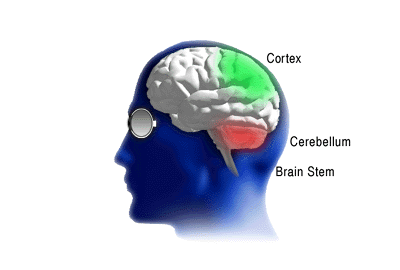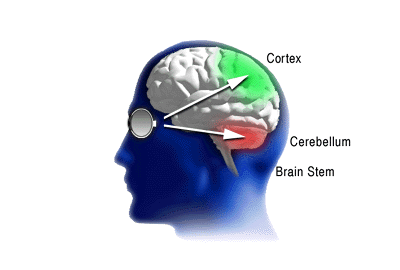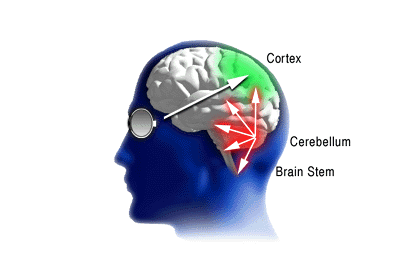| legal
reasoning: facts |
Using Narrative Argument to Promote
Favorable Results in Analytic Argument
|
|
How does the persuasive power
of narrative promote success in analytic argument?
Feeling affects thought in the process of attributing subjective
meaning to objective fact.
The
Physiology of Feelings and Thoughts.

|
Physiological researchers tell us that the physical
functioning of the brain provides a clue to how thought and feeling relate. |
We do our thinking in the neocortex, the most evolved, "highest"
part of the brain, the seat of our rationality. Our feelings, particularly our
fears, have roots in the cerebellum and brain stem, the most primitive part
of the brain, the so-called "animal" or "base" brain, the seat of our emotions.
 |
We perceive physical facts from the objective world
around us through our sensory organs -- eyes, ears, nose, mouth, and skin.
Sensory organs transmit signals by multiple routes. One route goes to the
system at the base of the brain, another to the neocortex.
|
But the base brain functions very quickly compared to the
neocortex. Its reaction speed allowed our species to survive. It produces a
nearly instantaneous, rudimentary, almost instinctive response (fight or flight)
and immediately signals this response out to the rest of the body, including
the neocortex.
 |
So fast is the response that its output arrives in
the neocortex virtually in parallel with the direct signal from the sensory
organ, and well before the neocortex has processed the sensory signal to
a rational thought. |
The rudimentary response from the base brain to the sensory
input thus effectively joins in parallel with the sensory input itself, and both
reach our higher cortical thought-processing apparatus more or less together.
 |
We then undertake the process of rationalizing a perception
of reality from the sensory input and our already formed and felt Gestalt
response.
|
The point is: we feel before
we think.
Feeling leads rationality. Thought resulting from our higher
cortical process seeks to produce rational meaning for what we have already
interpreted with our base systems of quick response.
The
Background, Experience and Individuality of the Listener.
Not only will a listener react to the emotion in a narrative
before he reacts to the logic in it, but his reaction will depend heavily upon
his previous life experience. Each decisionmaker (each person) starts with a stock
of life stories that conditions his present perception, like templates against
which the facts will be understood. These stories may overlap, even conflict.
We have our own sometimes conflicting experiences and we also absorb myth, Biblical
text, basic themes from literature, and popular culture. American pop culture
is rife with stories of law enforcement officers brutalizing criminals, of humans
subduing monsters, of animals being subjected to cruelty, of children being abused
-- as well as stories of law enforcement officers as heroes, of monsters and animals
overwhelming humans, of children being loved. Which stock story an observer will
use as a template in reacting to a factual narrative may depend on which stories
the observer has found most salient in the past, and on how artfully the storyteller
triggers connections to the observer's store of stock stories and experiences.
The
Combined Effects of Epistemology and Psychology.
Put these observations of epistemology and psychology together.
- Facts have no unique meaning
in and of themselves. Their meaning is attributed to them by the observer,
and is dependent on the observer's mindset and prior experiences.
- The observer's mindset is significantly
influenced by initial response to the events perceived. Thought follows feeling.
- The observer's initial response
may be influenced by how events are narrated.
The implications for lawyers are profound. Recognition at a
descriptive level of how the process works leads to the possibility of becoming
skilled at its manipulation in courtroom contexts. If you can tell your story
in a way that disposes the decisionmaker to your side, the decisionmaker will
be open to your logical argument, grateful to be supplied an argument that rationalizes
his Gestalt response to the facts. This is key to jury trials, appellate briefs,
and all forms of oral argument.




